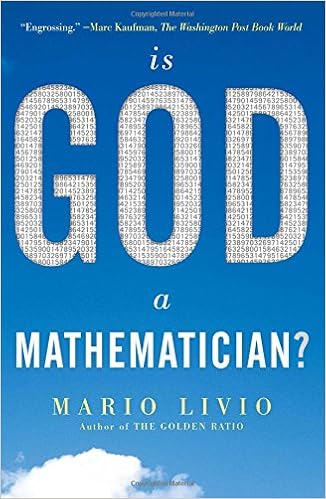I know some of you might be reading this and thinking “the
short list, what does that mean?”. Well, its pretty simple. I read a lot of
books, but I don’t necessarily review all of them. This is for a variety of
reasons. Sometimes there are books that I don’t feel strongly enough about to
review, and for some it just doesn’t work. Sometimes, the book in question
discusses a very niche topic or it’s one of those books that isn’t meant to be
taken too seriously or analyzed. I’ve been thinking quite a bit about books
like this, so I’ve decided to create The Short List, which gives me a chance to
talk about these books without writing a full review. In order to preserve my
own sanity, I will be posting these towards the end of every month.
With my explanation out of the way, let’s get into January’s
Short List.
Is God a Mathematiician by Mario Livio
This is a non-fiction book written by an astrophysicist. The
book examines the connection between mathematics, which is a collection of
abstract concepts, and the physical world. It tried to answer the questions of
how, if math is an entirely intangible concepts that humans invented, can it be
used to so easily explain things in physical reality? For example, the work
of British mathematician who was
well-known for his contribution to number theory (the study the properties of
whole, positive numbers), was used decades later to make breakthroughs in
cryptography. There’s also the matter of earlier individuals such as
Pythagoras, Archimedes and Isaac Newton, whose discoveries in their time have
wide applicability today. The book attempts to answers a simple question: did
we discover math when learning about the world around us or did we invent math
and it just so happens to explain so much about the world around us?
This book is on the Short List, because not many people I
know personally would be interested in a book like this. I have a math degree.
If I had the money, I’d probably be working on earning a Master’s degree in
math right now. I found this book interesting, but not everyone will.


I Could Pee on This (And Other Poems by Cats) by
Francesco Marciuliano
Yes, this is a book of poems. Yes, these poems are written
from a cat’s perspective. It’s a little weird, but it’s a fun book with a
creative premise. I bought it on a whim because the title made me laugh. It’s a
short, cute, fun read and anyone that has or had cats should read it. There are
lots of cute cats pictures inside as well.


What Will I Be? STEM Edition By Katie Greiner
I know you might be thinking, this is a kid’s book. Why did
you read a kids book? Well, two reasons. One, I have somewhat of a connection
to the author. While I’ve never met her, she and I are both alumnae of the same
sorority, from different colleges, for women studying in technical fields. I
wanted to support one of my sisters. Second I liked the message it was
sending.
There’s a stigma around women studying math, science and technology
and I, for one, am tired of it. This book tells kids, especially girls, that
they can be a doctor or an astronaut or a computer scientist and I like that
message.


The Prose Edda
This is, no doubt, the oldest book I’ve ever read that’s not
about the Trojan War. It was written in the 13th century in Iceland.
It’s one of the most well-known pieces of Scandinavian literature and our
biggest source of information about Norse Mythology. Unlike its older relative,
The Poetic Edda, it gives more detail into the myths it tells and it’s a
little easier to understand, since The Poetic Edda is, as one might
guess, a collection of poems. Given that The Prose Edda takes
inspiration from The Poetic Edda, they’re sometimes referred to as the Younger
Edda and the Elder Edda respectively.
As someone who, up until reading this, had only read Greek myths,
the differences are quite fascinating. Every mythology has a creation myth, but
very few have a detailed, soon-to-come destruction myth. I would advise anyone
thinking of reading this, or anything derived from this book, to leave anything
you learned from Marvel comics at the door, since they changed quite a bit.
Those were all of the books I completed in January but did not review. I know that this is a very varied list, but variety is the spice of life as they say. What are some books that you read this months? Any recommendations?
Those were all of the books I completed in January but did not review. I know that this is a very varied list, but variety is the spice of life as they say. What are some books that you read this months? Any recommendations?


No comments:
Post a Comment